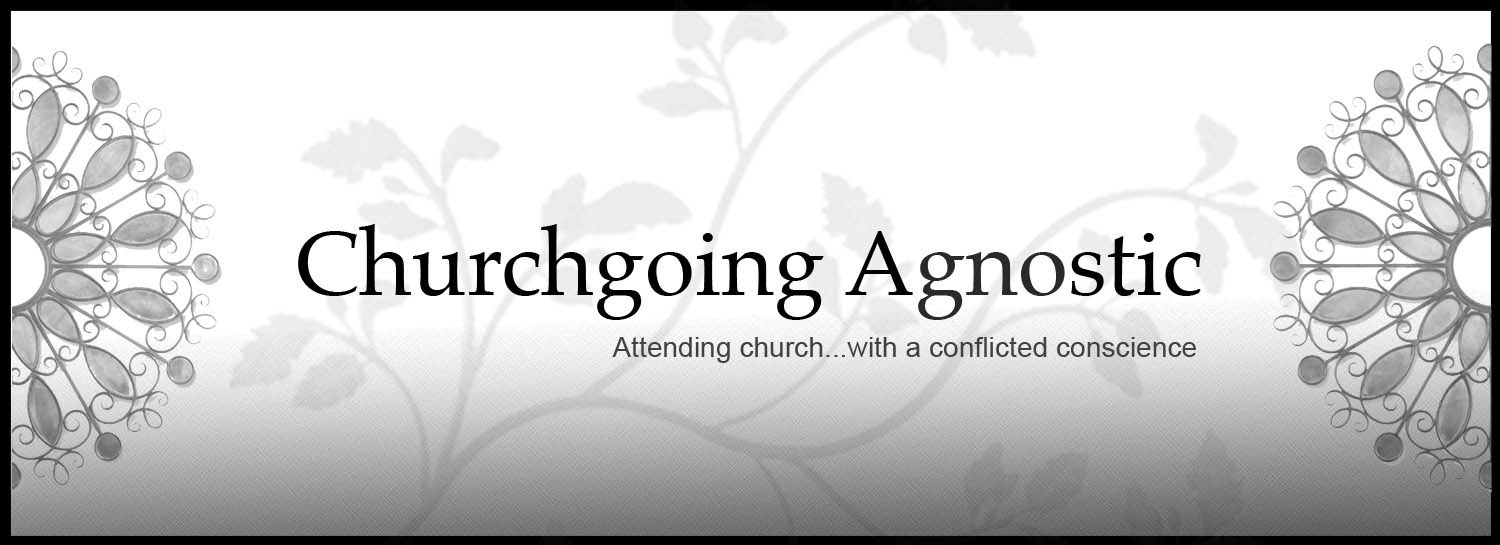I continue to struggle with 1) the whole idea that humans could possibly know the “mind”, “heart” or “will” of “God” and 2) that this supernatural “God” would intervene and reveal special messages to human beings (especially through one particular culture’s set of scriptures). As I understand it, most- if not all- forms of theology seem to be rooted in these two assumptions.
While I like the idea of using term “God” as being synonymous with “our ultimate concern” or symbolic of “that force within us that seeks truth or liberation,” my “red flags go up” when we start to personalize and give a human face to “God.”
As it relates to Liberation Theology, I’ve been wondering: Do we need a “God” to command us to treat others rightly? Has “God’s” name been utilized to invoke a compassion and justice based out of a fear of wrath or can we invoke compassion and justice through a reverence for our neighbor (which is enlightened by the scientific insight that we are all related in our biology and interconnected in this ecosystem called Earth)? Do we really need “God” to initiate responsive action toward the liberation of captives? Do we really need to be threatened by either earthly or eternal punishment or enticed with material or heavenly rewards in order to for us to be respectful, hospitable and humane towards others? I find it interesting that several other religious traditions manage to invoke compassion and make appeals for liberation without attributing it as being the willed command of a deity.
Instead of being “the revealed word of God,” could the Bible’s commands merely be those human ideas, tribal instincts and behavioral recommendations that gave Jewish and Christian cultures a sense of identity and stability in the midst of those surrounding cultures they considered “ungodly”? Here, I think of the Book of Leviticus and its repetitive commands to, “Be ye not like those people…be like this.” I also recall The Code of Hammurabi, how it was written centuries before the Hebrew Bible, how the Bible shares many of its laws, and how Hammurabi attributed the composition of his code to Marduk, the patron deity of Babylon. It’s enough to make me wonder: Is the Bible a collection of man-made commands that have been imposed by well-meaning people as being “God’s” will?
Maybe my “hermeneutics of suspicion” has been over-developed, but it seems presumptuous to suppose that the alleged creator of our expansive universe would be so wrapped up in earthly affairs that they would communicate their important and timeless message to all of humanity primarily and exclusively through the writings of a special group of Hebrew prophets and scribes who lived thousands of years ago. It’s hard for me to continue to believe that these special individuals were assigned to set forth “God’s” will in their time- for ALL time. As I’ve said before, I think the Bible is a collection of documents written for a variety of reasons by insightful, culture-bound Middle Eastern authors and that its interpretation is based on what some insightful humans throughout history have found in its pages to be meaningful, important and relevant for their own lives.
I’m willing to grant that there may be some transcendent, mystical dimension to life, but my doubts lead me to suspect that most- if not all- alleged mystical experiences could be accounted for with a naturalistic explanation of the brain’s neurobiological activities. While there “may” be some transcendent dimension, I doubt we human beings can be so secure in our certainty that such a dimension exists and that any of us can understand it.
It seems to me that “God” is a symbolic term that we humans often use to describe those aspects of reality which lay beyond our current understanding. If we don’t understand something, we often attribute it to “God.” How and why did I wake up this morning? I don’t know. It must be God. How was my daughter formed in the womb? I don’t know. It must be God. Why was I born into relative ease and privilege? I don’t know. Must be God. Why didn’t that tornado tear through my household as it did so many others? I don’t know. Again, it must be God.
For centuries, the natural sciences have been progressively chipping away at those things we formerly attributed to “God.” Astronomy, biology, physics, neurobiology and meteorology are just a few examples of fields that have made tremendous progress in explaining those things formerly beyond our capacity to comprehend. For thousands of years, cultures believed that “God” controlled the weather and that the weather was a reflection of either “God’s” favor or outrage. Now, I’d dare say, we know better.
At bottom- and at this point in my life- I think we attribute far too much of our perceived reality to the notion of “God.” I get suspicious of any and all who claim to know what this “God” wants- especially if it seems to mirror their own hopes, fears, desires and concerns.
Thursday, May 8, 2008
Subscribe to:
Posts (Atom)


